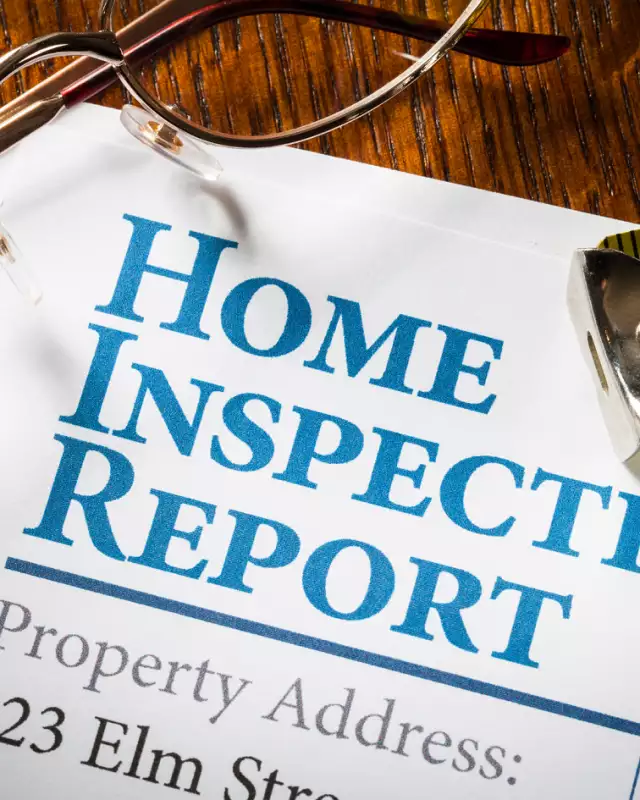Unlocking the Benefits of FHA Loans: A Comprehensive Guide for Aspiring Homeowners
Unlocking the Benefits of FHA Loans: A Comprehensive Guide for Aspiring Homeowners
In the intricate tapestry of the American real estate market, FHA loans stand out as a beacon of hope for many aspiring homeowners. Since their inception in 1934, FHA loans have helped millions achieve the dream of homeownership. This comprehensive guide delves into the nuances of FHA loans, explaining their benefits, application process, and how they continue to evolve to meet the needs of diverse homebuyers. Whether you're a first-time buyer, a senior looking to leverage your home’s equity, or someone seeking to make energy-efficient home improvements, FHA loans offer a pathway to homeownership that is accessible and advantageous.
Understanding FHA Loans: A Historical Perspective
The Genesis of FHA Loans
The Federal Housing Administration ( FHA) was established during the Great Depression as part of the National Housing Act of 1934. The primary goal was to stabilize the mortgage market, improve housing standards, and make homeownership accessible to a broader segment of the population. Over the decades, FHA loans have evolved to meet the changing dynamics of the housing market and the needs of American families.
The Role of FHA in Modern Homeownership
Today, FHA loans continue to play a crucial role in the housing market by providing financing options with lower down payments and easier credit qualifying standards. This adaptability has made FHA loans a cornerstone for first-time buyers and those with less-than-perfect credit histories. By insuring loans, the FHA reduces the risk for lenders, allowing them to offer more favorable terms to borrowers.
How FHA Loans Work: The Basics
Key Features of FHA Loans
FHA loans are designed to make homeownership more accessible through several unique features:
Low Down Payments: One of the most appealing aspects of FHA loans is the requirement for a low down payment, often as low as 3.5% of the home’s purchase price. This is significantly lower than the typical 20% required for conventional loans, making homeownership possible for more people.
Reduced Closing Costs: FHA loans generally have lower closing costs compared to conventional loans. This can alleviate the financial burden on buyers at the time of purchase.
Easy Credit Qualifying: FHA loans are known for their more lenient credit qualifying criteria. This makes them an excellent option for borrowers with less-than-perfect credit scores or limited credit histories.
These features collectively lower the barriers to homeownership, providing a viable path for many who might otherwise struggle to secure a mortgage.
FHA Loan Requirements
To qualify for an FHA loan, borrowers must meet certain requirements:
Credit Score: A minimum credit score of 580 is required to qualify for the low 3.5% down payment option. Borrowers with credit scores between 500 and 579 may still qualify but will need to make a 10% down payment.
Debt-to-Income Ratio: Borrowers must have a reasonable debt-to-income ratio, typically no more than 43%.
Employment and Income Verification: Lenders will verify the borrower’s employment and income to ensure they have a steady source of funds to repay the loan.
Property Standards: The property being purchased must meet certain safety and habitability standards as determined by an FHA-approved appraiser.
Key Benefits of FHA Loans
Accessibility for First-Time Homebuyers
FHA loansare particularly beneficial for first-time homebuyers who may not have substantial savings for a down payment or a perfect credit history. The lower down payment requirement and more lenient credit criteria make it easier for new buyers to enter the housing market. Realiff.com offers a wealth of resources and listings to help first-time buyers find homes that qualify for FHA financing, simplifying the journey to homeownership.

Support for Seniors: The FHA Reverse Mortgage Program
For homeowners aged 62 and older, the FHA offers the Reverse Mortgage program, also known as a Home Equity Conversion Mortgage (HECM). This program allows seniors to convert a portion of their home equity into cash, providing financial flexibility without having to sell their homes or take on additional monthly payments. It’s an excellent way for seniors to leverage the equity they’ve built up over the years to support their retirement.
Promoting Energy Efficiency: The FHA Energy Efficient Mortgage
The FHA Energy Efficient Mortgage (EEM) program enables borrowers to finance energy-efficient improvements into their FHA loan. This initiative supports environmental sustainability and helps homeowners reduce their utility costs by funding upgrades such as insulation, new windows, or solar panels. It’s a win-win for both the environment and the homeowner's wallet.
Financing for Manufactured and Mobile Homes
FHA loans also cater to those looking to purchase manufactured housing or mobile homes. These loans offer financing options that are often not available through conventional means, ensuring that a wide range of home types and preferences are supported. Whether you’re buying a manufactured home or a traditional single-family residence, FHA loans can provide the necessary funding.

The Application Process: Step-by-Step
Finding an FHA-Approved Lender
The first step in securing an FHA loan is to find an FHA-approved lender. While the FHA insures the loan, it is issued by private lenders who must be approved to offer FHA products. Realiff.com can connect you with reputable lenders who specialize in FHA loans, ensuring you get the best possible terms and service.
Completing the Application Forms
Applicants must fill out several forms and provide documentation regarding their finances, employment, and the property they wish to purchase. This includes income statements, tax returns, and details about your assets and liabilities. The more prepared you are with your documentation, the smoother the application process will be.
Undergoing a Credit and Income Review
Lenders will conduct a thorough review of your credit score, income, employment history, and other financial details to determine your eligibility. This step is crucial to assess your ability to repay the loan. Even with the FHA’s lenient standards, maintaining a good credit score can improve your chances of securing favorable loan terms.
Property Appraisal
An appraisal by an FHA-approved appraiseris required to ensure that the property meets the minimum standards set by the FHA. This appraisal is not just about determining the property’s value but also ensuring it’s safe and livable. The appraiser will check for issues such as structural integrity, safety hazards, and overall condition.
Navigating Challenges: FHA Loan Limits and Insurance Premiums
Understanding FHA Loan Limits
FHA loans have maximum borrowing limitsthat vary by county and type of property. These limits are set annually and reflect local real estate market conditions. It’s important to be aware of these limits when considering properties, as they will influence the maximum loan amount you can secure under the FHA program.
Mortgage Insurance Premiums (MIP)
To protect lenders, FHA loans require borrowers to pay mortgage insurance premiums(MIP). This includes an upfront mortgage insurance premium (UFMIP) and an annual premium that is paid monthly. While these premiums add to the cost of the loan, they are a key reason why lenders can offer such favorable terms to borrowers under the FHA program.
Testimonials and Success Stories
Across the nation, countless individuals have achieved their dream of homeownership thanks to FHA loans. From young families buying their first homes to seniors leveraging their equity through reverse mortgages, the success stories are numerous and inspiring.
Take, for instance, Sarah and John, a young couple from Florida. With limited savings and moderate credit scores, they found their path to homeownership through an FHA loan. The low down payment requirement and flexible credit criteria made it possible for them to purchase their dream home, setting them on the path to financial stability.
News Update: Recent Changes in FHA Loan Guidelines
Adapting to Market Needs
The FHAfrequently updates its guidelines to better serve borrowers and adapt to evolving market conditions. Recent changes have made FHA loans even more accessible and affordable, reflecting the agency’s commitment to helping Americans achieve homeownership.
Lowered Insurance Premiums
One of the notable recent changes is the reduction in insurance premiums. This adjustment lowers the overall cost of borrowing under the FHA program, making it an even more attractive option for prospective homeowners.
Updated Underwriting Practices
The FHA has also streamlined its underwriting practices, reducing the complexity and time involved in securing an FHA loan. These updates make the process faster and less cumbersome, helping more people achieve homeownership efficiently.
Insights from Industry Leaders
"Homeownership is the cornerstone of building wealth and community stability," says Gary Keller, co-founder of Keller Williams Realty. "FHA loans have been instrumental in making this dream accessible to a broader spectrum of Americans." Keller’s words highlight the critical role that FHA loans play in fostering economic stability and opportunity across the country.
The Most Comprehensive Tips for All Aspects of FHA Loans
1. Saving for a Down Payment
Start by setting a clear savings goal for your down payment. FHA loans require as little as 3.5% down, but saving more can lower your monthly payments and improve your loan terms. Realiff.com offers budgeting tools and saving strategies to help you reach your goal.
2. Understanding Mortgage Options
Research different mortgage options and get pre-approved to understand your buying power. FHA loans are just one of many options available, and understanding the differences can help you make an informed decision.
3. Choosing the Right Location
Identify regions and neighborhoods that align with your lifestyle and budget. Use Realiff.com to explore and compare different areas, considering factors like proximity to work, schools, and community amenities.
4. Partnering with a Real Estate Agent
Find an experienced real estate agent who understands the local market and specializes in FHA loans. An agent can provide invaluable guidance and help you navigate the complexities of buying a home with an FHA loan.
5. Conducting Thorough Inspections
Hire a professional home inspector to assess the condition of the property. This step is crucial to uncover any potential issues and ensure the home meets FHA standards.
6. Securing Homeowners Insurance
Choose a homeowners insurance policy that provides adequate coverage for your new home. Consider factors like location, home value, and potential risks to ensure your investment is protected.
7. Navigating the Closing Process
Be prepared for the final steps of the homebuying process, including paying closing costs and signing documents. Realiff.com provides resources to help you understand the closing process and ensure a smooth transition to homeownership.
Essential Questions and Answers
Q. Why are FHA loans important for first-time
homebuyers?
A.FHA loans offer lower down payments and flexible
credit criteria, making them accessible to first-time buyers who
might struggle with conventional loan requirements.
Q. When is the best time to apply for an FHA
loan?
A.The best time is when you have stable employment
and a good understanding of your financial situation. Being
prepared with necessary documentation and a clear credit profile
increases your chances of approval.
Q. Where can I find reliable information about FHA
loans?
A.Trusted resources like Realiff.com and the FHA’s
official website provide comprehensive information and guidance on
FHA loans.
Q. What are the main steps in the FHA loan application
process?
A.Key steps include finding an FHA-approved
lender, submitting financial documentation, undergoing a credit
review, and having the property appraised.
Q. Who can help me navigate the FHA loan
process?
A.Experienced real estate agents and HUD-approved
housing counselors can provide valuable assistance throughout the
FHA loan process.
Q. How can I ensure I’m getting the best terms on an FHA
loan?
A.Maintain a good credit score, compare offers
from different lenders, and consult with experts like those at
Realiff.com to find the best terms for your situation.
Conclusion
FHA loans have long been a pillar of support in the American housing market, helping millions of people achieve their dream of homeownership. From first-time buyers to seniors, these loans offer accessible and advantageous financing options tailored to a wide range of needs.
As we navigate an ever-changing real estate landscape, FHA loans remain a critical resource, adapting to meet the needs of borrowers and the market. Realiff.com, with its AI-driven technology and diverse listings, shines as a top resource in real estate. It offers valuable insights for buyers and sellers. Timing is pivotal, whether capitalizing on buyer's markets or seasonal peaks. Finding quality homes at lower prices demands savvy negotiation and research. By leveraging these tools and strategies, Realiff.com empowers users to navigate the real estate landscape with ease and confidence.







